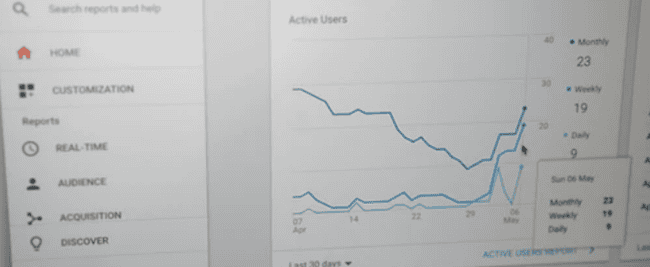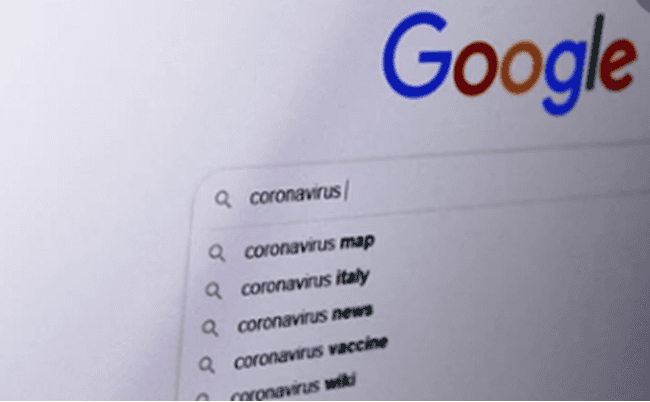How to Do SEO Yourself: DIY without Hiring (to Save Money)

Would you like to learn how to do your own SEO and save money in the process?
SEO can be a tricky business that can also be costly. It's important to get it right, or you could lose out on a lot of web traffic.
That's why many people choose to hire an SEO expert to take care of things for them.
But what if you don't want to spend the money?
Well, we have good news for you!
You can do SEO yourself with a little bit of effort and some helpful tips from our guide.
Not only will DIY SEO save money, but you'll also learn a lot about how SEO works.
What Does It Mean to Do SEO Yourself?
When you do SEO yourself, you are taking on the responsibility of optimizing your website and content for organic search engines.
DIY SEO includes researching and implementing the right keywords, developing effective link-building and on-page optimization strategies, and tracking your results so you can continue to improve your rankings.
By doing all of these yourself, you can save money on SEO services, but it takes a lot of time and effort to learn all the necessary skills.
Can I Do SEO Myself?
Most of the time, a webmaster asks such questions.
The answer is ‘Yes, you can do SEO yourself'.
Reasons You Need to Know How to Do SEO Yourself
SEO is a complex and ever-changing field, and it's important to stay on top of the latest trends if you want to achieve good results.
If you're not an expert, it can be difficult to keep up with all the changes and know which techniques are effective.
That's why it's important to learn how to do SEO yourself so you can stay ahead of the competition and make your website more visible to search engines.

Below are some of the reasons why you should learn how to do SEO on your own:
- SEO is a critical aspect of online marketing and can be the difference between success and failure.
- It is one of the most effective ways to drive organic traffic to your website, which can result in more customers and sales.
- SEO is a cost-effective way to improve your website’s visibility and search rankings in the search engine results pages (SERPs).
- It can help you stand out from your competitors and increase your brand awareness.
- By optimizing your website for SEO, you can improve its usability and user experience (UX) for your target audience.
- It is an essential skill for any digital marketer or business owner who wants to succeed online.
Step-by-Step Instructions to Do SEO Yourself
SEO, or search engine optimization, is the process of improving the ranking of a website on search engines.
A higher ranking means that the website will be more likely to be seen by people who are searching for specific terms related to the products or services that the website offers.
There are a number of things that you can do to improve the SEO of your website.
We will provide you with a step-by-step guide on how to do Google SEO yourself.
1. Research your keywords.
2. Optimize your website for those keywords.
3. Create high-quality content around those keywords.
4. Promote your content on social media and other channels.
5. Monitor your results and adjust your strategy as necessary.
1. Research Your Keywords

How to Perform Keyword Research
- Figure out what words people might use to find your product or service. You can make use of any good keyword research tool to make it easier to find good keyword ideas for your target audience.
- Use those words on your website, in your ads, and in other marketing materials.
- Monitor how well those keywords are working by checking your website's analytics and Google search console.
- As you begin to see your keyword rankings, adjust your keywords as needed to make sure you're reaching the right people with the right message.
Avoid Keyword Stuffing
Keyword stuffing means adding a lot of keywords to your content in order to make it seem like you know what you're talking about.
But this can actually make your content hard to read and understand.
It's best to avoid keyword stuffing so that people can actually enjoy your writing.
Keyword research is an important part of any SEO campaign.
It helps you identify the right keywords to target, and find out how competitive those keywords are.
Good keyword research that matches search intent can help you achieve better rankings and more organic traffic from search engines.
2. Optimize Your Website for Those Keywords

Now that you know what keywords to target, it is important to make sure that your website is optimized for them.
This means including those keywords in the right places on your website, such as in the titles, meta descriptions, and tags.
You can also use them in your content, but be careful not to overuse them or your site will look spammy.
Make Good Use of Internal Links
Internal linking is a way to connect different pages of your website together. This is done by putting internal links on one landing page that go to other pages on your website.
A good internal linking strategy can help people find information on your website more easily, and it can also help you improve your search engine ranking.
To do internal linking effectively, you should make sure that the links are relevant to the content of the pages they're linking to, and that they're placed in strategic locations where they will be most useful.
3. Create High-Quality Content Around Those Keywords

You can make your website better by writing high-quality content around the keywords you want to rank for.
To do this, you'll need to think of topics that people would be interested in reading about.
Once you have a topic, write a well-researched article that provides valuable information to your readers.
Make sure to use your target keywords throughout the article, as well as in the title and meta description.
4. Promote Your Content on Social Media and Other Channels

When you create content, it's important to promote it on social media and other channels so more people can see it.
You can do this by sharing the link to your content on social media, emailing it to your friends and family, or even posting about it on other websites.
5. Link Building

One of the most important factors in SEO is building links from other websites back to yours. The more links you have from high-quality websites, the higher your ranking will be.
There are many ways to build links, including guest posting.
6. Monitor Your Results and Adjust Your Strategy As Necessary

You need to keep track of how your marketing is doing and make changes to your strategy if it's not working.
This means checking how many people are visiting your website or blog, how many leads you're getting, and how much business you're making.
If things aren't going well, try a different tactic.
Key Considerations for Successfully Doing SEO Yourself
There are a few other things you should keep in mind when doing SEO yourself:
Be Patient:
It is important to be patient when doing SEO yourself. Rankings don't happen overnight and you may not see results for a few months.
Be Consistent:
You also need to be consistent with your efforts. If you stop optimizing your website for a few weeks, you will lose the progress you've made and may have to start from scratch.
Be Creative:
It's important to be creative and think of new ways to market your content.
Optimize Your Website for Speed

Google takes a very serious look at sites that have long times of loading, which could affect search engine rankings.
In order to improve user-friendly search engines, site speed is a key component in optimizing a website.
It can be scanned using software like GTmetrix to find quick performance solutions.
Hosting Server is the key to determining site performance. A reliable hosting provider is able to improve site SEO.
We recommend Bluehost or WPX for WordPress websites because of the rapid server speed and competitive prices.
Eliminate Duplicate Content

The easiest way to drop out from the rankings in search engines is to copy the content of others.
When Google shows the same piece on multiple sites, it displays only the first page and pulls the other pages from Google search results.
Google's search engine goal was to make content relevant in search engine results and to remove duplicate content or non-important blog posts.
If you want to use other websites for content, the easiest method to get there is by linking to the original source or using a 301 redirect from the same website.
Run a Site Audit of Your Website
Running a site audit can help you identify any potential issues with your website and fix them before they cause any major problems.
There are a number of different website audit tools and services that can help you do this, but here are a few steps to get started:
1. Start by identifying the areas of your website that you want to audit. This might include everything from your home page to your contact form.
2. Use a tool like Google PageSpeed Insights to evaluate the performance of your website.
This will help you identify any areas where your pages are loading slowly or could be improved.
3. Use a tool like W3C's Web Accessibility Evaluation Tool to check for accessibility issues.
This will help you make sure that your website is accessible to everyone, including people with disabilities.
4. Use a tool like SEMrush to crawl your website and collect data about its structure and content.
This can help you identify any areas where your website could be improved from an SEO standpoint.
Running a website audit is important because it can help you find problems with your website. This information can help you make your website better and faster.
Find Gold in the Long Tail
Ranking the most trafficked keywords is very important across many industries.

Many such keywords may have a high search volume, but ranking in such highly competitive categories can prove difficult to accomplish.
Instead of concentrating on a single term you want to focus primarily on keywords.
People who use search engines often search for long-tail keywords when they're close to purchasing something.
Long tail keywords are key elements in a successful online business plan. They constitute a significant portion of the traffic to Google.
Don't Forget the User
Many sites still use Google's rank system. Many of their blog posts contain keyword terms that are unsuitable for humans.
But today, Google has implemented algorithms to assess user experiences on websites.
Clean site navigation with internal links and sitemaps helps your website get more search visibility and improve search engine crawler performance.
It's the high volume of traffic, but not necessarily a lot of traffic, which increases the number of customers you get from your customer list.
Set up Google Analytics
SEO needs a strong data mining algorithm to be successful.
Google Analytics helps you optimize your website to increase its search ranking and it also helps you analyze bounce rates.
This application has a lot of benefits, including monitoring website usage and finding keywords to improve your website.
You can use annotations to mark new steps in your website's search engine optimization strategies and you may also see how they affect your webpage.
Google Analytics is a useful tool for determining how many visitors a website gets.
Optimize Your Website for Mobile Devices

Make sure your website is easy to use and looks good on all devices. It should be user-friendly on desktops as well as mobile devices.
How to Become Better At Doing SEO Yourself
The best way to become better at doing SEO yourself depends on your current skillset and knowledge level.
However, here are five general tips that should help you improve your SEO skills:
1. Learn about the basics of SEO and how it works.
2. Stay up to date with the latest changes and updates to the Google algorithm.
3. Experiment with different methods and techniques to see what works best for your website or blog.
4. Get involved in online communities or forums where you can ask questions and learn from others who are also interested in SEO.
5. Take courses or tutorials that can teach you more about SEO (or hire an SEO expert to help guide you).
Alternatives to Doing SEO Yourself
There are a lot of different ways to do SEO, and it can be tough to know where to start.
You could spend hours reading about SEO techniques online, or you could hire an SEO expert to help you out.
But there are also other options available that can be just as effective as doing SEO yourself.
We'll take a look at some of the best alternatives to doing your own SEO.
Hiring an Expert:
One of the best ways to make sure your website is getting the attention it deserves is to hire an expert in SEO.
They will have years of experience and knowledge in optimizing websites for Google and other search engines, and they can help you get your website up to speed quickly and easily.
There are a number of great SEO firms out there that can help you with everything from keyword research to on-page optimization, so be sure to do your research before choosing one.
Using Tools:
There are a number of great tools available that can help you with your SEO efforts.

Some of the most popular ones include SEO Powersuite, Surfer SEO, SEMRush, Moz Pro, Ahrefs, and Screaming Frog.
These tools allow you to track your website's ranking on Google SERPs, spy on your competitor's strategies, identify potential keywords, and much more.
While they can be a bit pricey, they are definitely worth the investment if you're serious about taking your website to the next level.
Outsourcing:
If you don't have the time or budget to hire an expert or use tools, another great option is to outsource your SEO to a freelancer.
There are some good freelancers out there who can help you with everything from link building to content marketing.
Be sure to check out their portfolios and reviews before hiring anyone, and make sure you have a clear idea of what you want them to do for you.
As you can see, there are a number of different ways to go about doing your own SEO.
Which method you choose will ultimately depend on your budget, time constraints, and level of expertise.
But whatever route you decide to take, be sure to put in the time and effort necessary to get the best results for your website.
How Can I Practice SEO at Home?

Practicing SEO at home can be a little tricky, but it's definitely doable with a little effort.
The first step is understanding what SEO is and what its goals are.
Once you have a good understanding of what SEO is trying to achieve, you can start to focus on mastering the basics like keyword research and creating SEO-friendly content.
You should also learn how to identify UX signals, as these can help you optimize your content for better search engine visibility.
Additionally, you'll want to start building links to your content – this is a key component of any successful SEO strategy.
With a little practice and effort, you'll be well on your way to becoming an SEO expert!
Conclusion
SEO can be a complex and ever-changing field, which is why many big and small business owners choose to outsource the work to professionals rather than DIY SEO.
However, if you're willing to put in the time and effort, you can do SEO yourself and save money in the process.
We've outlined a few key steps that will help you get started. We also suggest checking out some of our other SEO resources for more tips and advice.
How have you successfully implemented DIY SEO into your marketing strategy?
